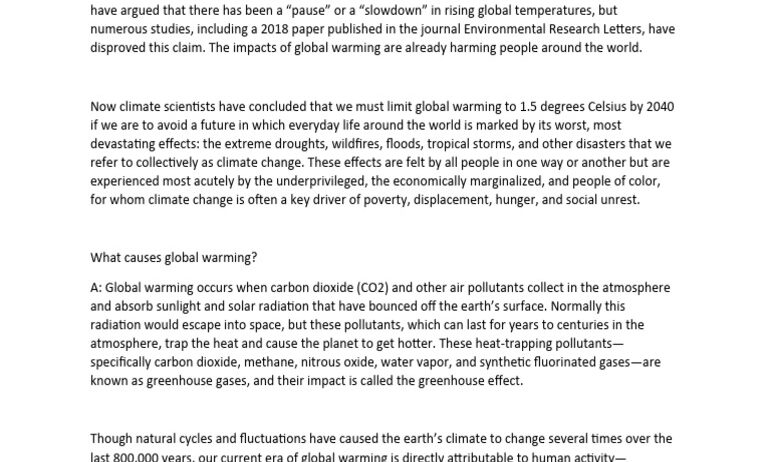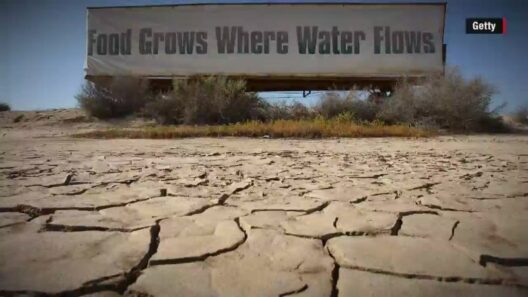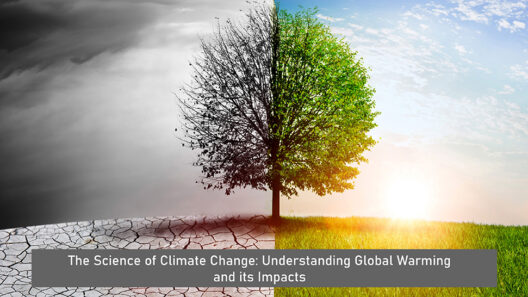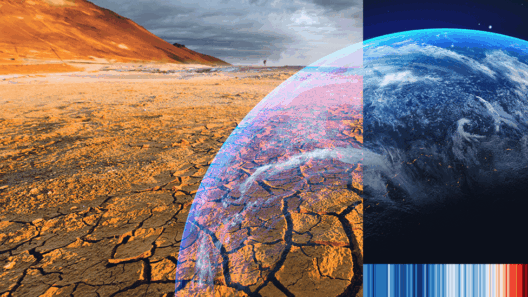The Industrial Revolution, which burgeoned in the late 18th century, was not merely an epoch of technological advancement; it was the turning point at which humanity irrevocably altered the fabric of the Earth’s climate. This transformation, likened to a double-edged sword, brought forth unprecedented prosperity and innovation while simultaneously laying the groundwork for a myriad of environmental adversities. As we delve into this complex dynamic, we will explore the intricate web of consequences that emerged, examining not only the rise of industrialization but also its profound impact on atmospheric conditions and ecosystems.
At the heart of this revolution lay the synergy between steam power and mechanization. Factories, once silent bastions of manual labor, erupted into cacophonous arenas, driven by the relentless hum of steam engines. This transition marked humanity’s successful conquest over the forces of nature, akin to Prometheus stealing fire from the gods. However, this newfound power came with a cost, as the burning of fossil fuels such as coal and later, oil, released voluminous quantities of greenhouse gases—primarily carbon dioxide (CO2)—into the atmosphere.
The relentless extraction and combustion of these natural resources acted as a catalyst, spurring a dramatic increase in atmospheric CO2 concentrations. The baseline atmospheric CO2 level, hovering around 280 parts per million before the Industrial Revolution, now surpasses 400 parts per million. This monumental increase can be envisaged as an unnatural blanket enveloping the Earth, trapping heat and thereby destabilizing the climatic equilibrium that had prevailed for millennia. This phenomenon, akin to a slow simmer on a heating pot, gradually escalates, leading to a cascade of climatic repercussions.
As the industrial furnace roared to life, so too did the global temperature. The Earth began to embark on a precarious trajectory, experiencing a rise in average surface temperatures—a trend that continues unabated. The Intergovernmental Panel on Climate Change (IPCC) has unequivocally linked this temperature increase to anthropogenic influences. The resultant warming is not merely a statistical anomaly but a harbinger of altered weather patterns, extreme weather events, and shifting biological paradigms.
In this context, let us consider the metaphor of a maestro conducting a symphony. With each industrial chord struck, we have rewritten climatic melodies, introducing dissonance into nature’s orchestra. The once harmonious cycles of rainfall, temperature, and seasonal change are now marred by the chaos of irregularities. Droughts, floods, and hurricanes manifest with increased frequency and ferocity, sounding alarms that resonate through socio-economic landscapes. Agricultural disruptions, water scarcity, and food insecurity threaten to elongate the shadow of this revolution. Regions once fertile are transformed into arid wastelands or inundated under sea levels touting unprecedented heights.
Furthermore, the ecosystems that flourish alongside humanity have found themselves caught in the crossfire of this climatic war. The very act of urbanizing landscapes and displacing natural habitats has led to a dramatic loss of biodiversity. Species extinction, driven by habitat destruction and shifting climates, now constitutes a silent crisis. The delicate tapestry of life—woven together over millions of years—is unraveling, with entire species vanishing from the Earth at an alarming rate. This presents not only an ecological tragedy but a profound ethical dilemma regarding our stewardship of the planet.
As the clock ticks forward, the Industrial Revolution’s legacy continues to unfurl. The socio-political ramifications are equally profound; communities are left vulnerable to the whims of climatic shifts. The stark reality is that those least responsible for carbon emissions—the marginalized and impoverished—often bear the brunt of environmental degradation. Climate change has exacerbated inequalities, making the quest for climate justice an imperative amidst the ongoing discourse surrounding environmental accountability.
The notion of sustainability has emerged as a response to the chaos wrought by industrialization, like a phoenix rising from the ashes. As societies grapple with the repercussions of their actions, innovative paradigms are being developed to mitigate these catastrophic changes. Renewable energy sources such as wind, solar, and geothermal are now positioned as the harbingers of a new era—one wherein the destructive narratives of the past are rewritten with visions of resilience and adaptability. Each technological leap in sustainability is a step toward harmonizing humanity’s relationship with the Earth, striving for a symbiotic existence rather than one of parasitism.
Yet, the path towards redemption is fraught with obstacles. The resistance to change, fueled by economic interests and an entrenched dependency on fossil fuels, poses significant challenges. The dialogue surrounding climate action must evolve, incorporating diverse perspectives and prioritizing grassroots movements that demand accountability and transformative policies. Education remains a cornerstone in this fight; by instilling awareness and fostering an appreciation for ecological balance, future generations can be equipped to navigate the complex realities of a warming planet.
In conclusion, the Industrial Revolution marked a watershed moment in the annals of human history, coalescing innovation with responsibility. The shadows it casts remind us of the urgency to transcend the legacies of the past, steering humanity toward an era defined by sustainability rather than devastation. As we reflect on this poignant narrative, let us cultivate an awareness that champions the preservation of our shared home, recognizing that our choices today will engrave the climate’s future for generations yet unborn. The time for action is not tomorrow; it is now.








